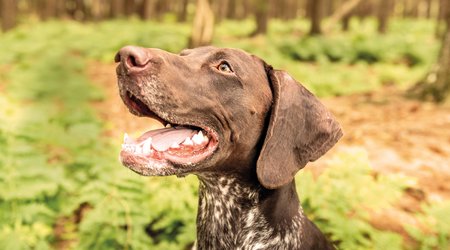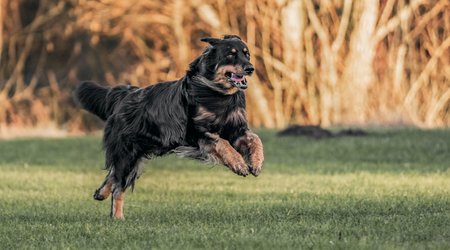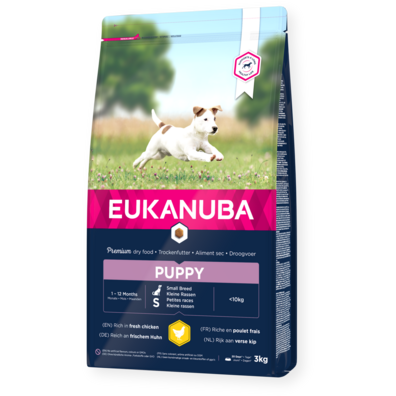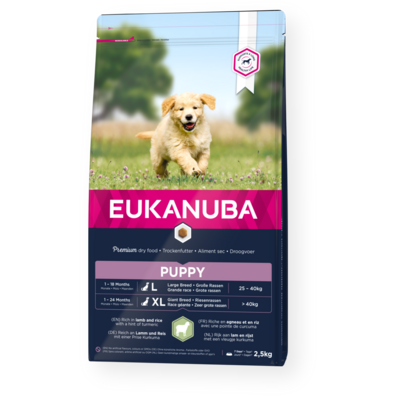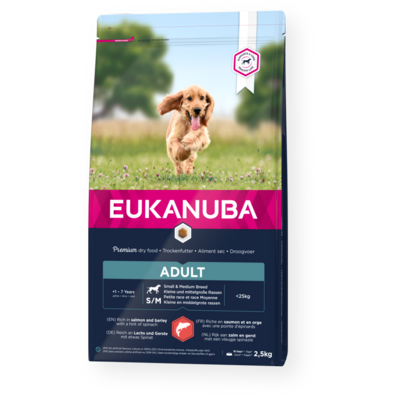Sensitive skin in dogs
The skin is one of the largest organs in dogs, accounting for 24% of a puppy’s weight and 13% of an adult dog’s weight. The skin plays a crucial role in protecting the internal organs and reducing the risk of injuries and pain. Healthy skin is essential for optimum physical health and wellbeing. Dogs, like humans, can be susceptible to sensitive skin. If you have a dog and you’re worried about sensitive skin, or you’re looking for advice to keep your dog’s skin healthy, this guide is packed with useful information.

Common sensitive skin signs
It’s normal for owners to marvel at their dog’s flexibility while watching them scratch an itch but what happens if your pet is scratching more than usual or they seem irritable or uncomfortable? There are several possible signs of skin sensitivity in dogs. Learning to spot dog sensitive skin signs ensures that you can help your pup as soon as possible and prevent the condition from getting worse. Common signs of sensitivity in dogs include:
-
Increased scratching: if your dog has sensitive skin, they may scratch more than usual and you may find that the scratching becomes more intense, as well as more frequent.
-
Hair loss: hair loss can be a sign of sensitivity, especially if there are patches of substantial hair loss or thinning.
-
Dry, flaky skin: if your dog’s skin is sensitive, there may be patches of dry, flaky skin, and you might also notice that your dog is more prone to dandruff, which is more noticeable than normal skin shedding during moulting.
-
Rubbing: if your pet has itchy, sensitive skin, you might see them rubbing up against surfaces or objects more frequently trying to scratch and get rid of the discomfort caused by itchy skin.

Why does my dog have sensitive skin?
As a dog owner, it’s natural to want to do everything possible to keep your best friend in good shape. It can be incredibly distressing to see a dog in discomfort. While sensitive skin is often a mild problem that can be treated and managed, it’s beneficial to keep an eye on your dog’s coat and to check their skin regularly. If you have concerns, you can seek advice from your vet.
There are several reasons why dogs experience sensitive skin. These include environmental and genetic factors.
Environmental factors
Environmental factors that can elevate the risk of sensitive skin in dogs include:
-
Exposure to dry environments: you may find that your dog starts to itch more or their skin becomes drier and flakier when you have the heating or air conditioning on more frequently. These systems cause increased dryness in the air, which can contribute to sensitivity.
-
Seasonal sensitivity: some dogs, like humans, develop sensitivity when the seasons change as a result of the weather and allergic reactions. Dry skin tends to become more common in the winter months while symptoms linked to allergies are more prevalent in the spring and summer months.
-
Parasites: parasites can cause a host of problems for dogs, including sensitive skin, itchiness and dry, flaky skin. Mites tend to cause dryness while flea bites can cause irritation and itchiness.
Genetic factors
Some dogs are more likely to develop sensitive skin than others due to genetic factors. The most common causes include:
- Diet: food allergies in dogs can cause sensitivity and other skin issues as well as affecting digestive health. If your dog has sensitive skin, this could be related to a food allergy, for example, corn-based, gluten feeds.
-
Allergies: dogs can be allergic to several different types of allergens, including food products, pollen, grass and dust mites. If your dog has an allergy, you may find that it affects their skin, causing irritation, dryness or hair loss.
Tips for managing sensitive skin in dogs
If you think your dog might have sensitive skin, or you have noticed that their skin seems dry or flaky, they are itching more than normal or they seem to be losing hair, it is possible to try and reduce and prevent symptoms. Here are some top tips to help you treat your pet:
Keep up with grooming: grooming plays a critical role in maintaining a healthy, vibrant coat and it can also help to improve the condition of the skin. You can groom your dog yourself or take your pet to an experienced groomer. If you are concerned about sensitive skin, it’s important to research grooming salons and parlours and to search for a groomer with an excellent reputation who will be able to recommend therapies and products that are best for your dog.
- Changing your dog’s diet: allergies can cause sensitivity. Changing your dog’s diet can help to improve their skin health, as well as their general wellbeing.
- Use products for sensitive skin: just like their owners, dogs can benefit from using cleaning and grooming products that are specially designed for sensitive skin. These products tend to be gentler and they are designed to target allergens and restore, repair and nourish the skin.
- Cleaning your dog’s feet: cleaning your dog’s feet is not just a great idea to preserve your carpets. It also helps to reduce contact with allergens.
- Using vitamin E supplements: vitamin E supplements can help to boost skin health and prevent dryness. Ask your vet for advice before using any supplements
What is the best dog food for a dog with sensitive skin?
One of the most effective ways to reduce sensitivity and treat a dog who has sensitive skin is to consider switching their food. Allergies and sensitivities linked to certain types of food can cause dry, flaky, itchy skin. If you think that your dog may have allergies, you can try and isolate different ingredients to spot triggers and identify allergens. You can also change your dog’s diet to include dog food that is specially formulated for canine companions with sensitive skin, such as Eukanuba Daily Care Dry Dog Food for Sensitive Skin. This hypoallergenic product is designed to limit ingredients that could be linked to sensitivity and includes a single protein, fish.
When to seek advice
If you have spotted any of the signs listed above or you are worried about your dog’s skin, don’t hesitate to seek advice from your vet. If your dog has sensitive skin, your vet will be able to recommend grooming and food products and provide tips to help you make them feel more comfortable at home.
Summary
Sensitive skin is relatively common in dogs. It is often caused by a combination of genetic and environmental factors, which cause the skin to become dry, scaly and itchy. If you have a dog and you think they may have sensitive skin, changing their diet, keeping up with grooming and seeking expert advice about allergies and skin care can help
